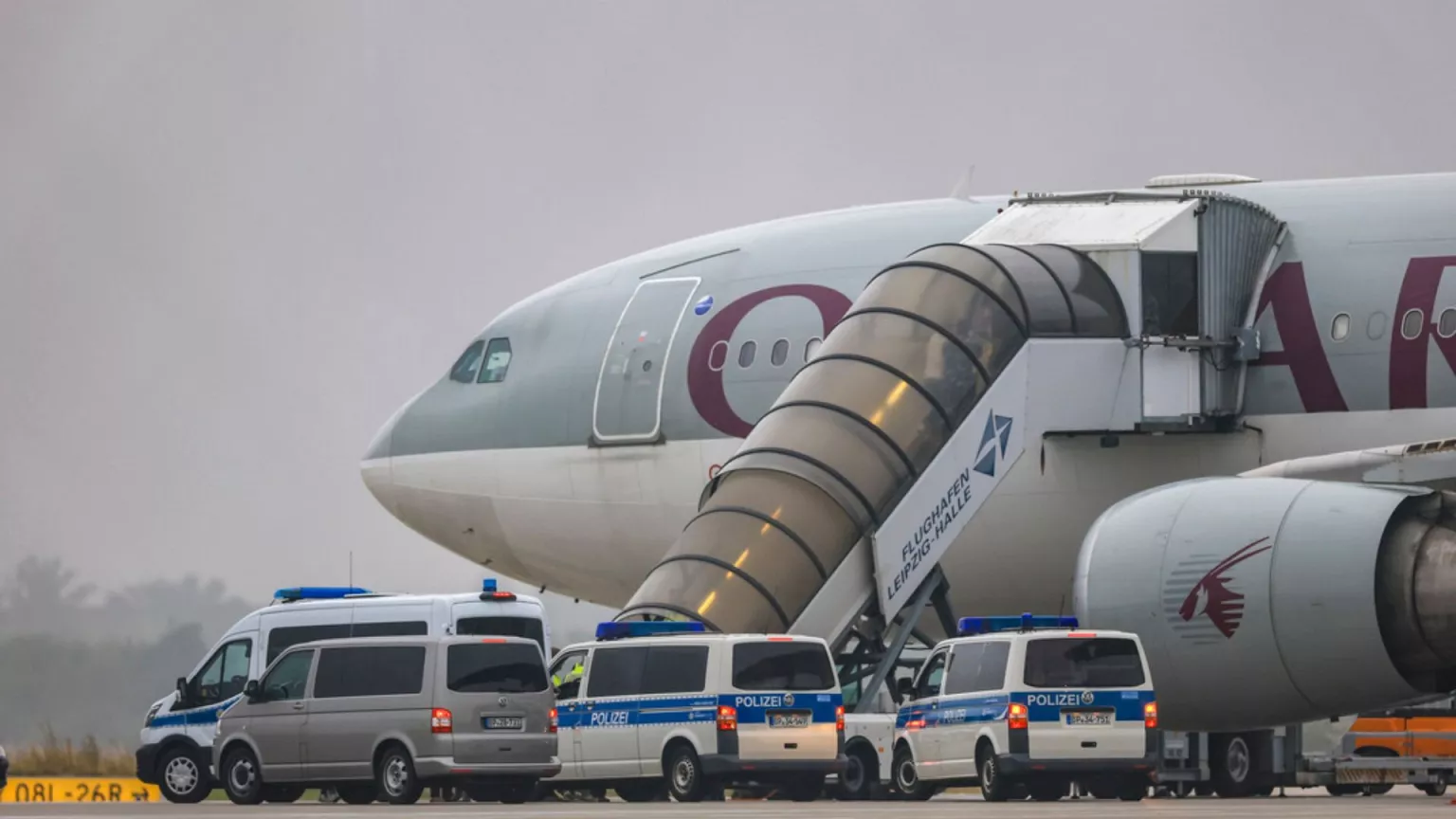Germany announced Friday it has deported 81 Afghan men convicted of crimes back to their Taliban-controlled homeland.
This move signals a stricter approach to immigration from Chancellor Friedrich Merz’s government.
Deportation Details and Policy Shift
The interior ministry confirmed that a plane carrying the men departed Friday morning for Afghanistan. All individuals deported were under expulsion orders and had been convicted by Germany’s criminal justice system.
Interior Minister Alexander Dobrindt, currently hosting a migration meeting with several European counterparts, stated that Germany is pursuing a “policy change.”
He emphasised that “Deportations to Afghanistan must continue to be carried out safely in the future. There is no right of residence for serious criminals in our country.”
Germany had halted deportations to Afghanistan and closed its embassy in Kabul after the Taliban regained power in 2021.
However, expulsions resumed last year under the previous government, with a group of 28 convicted Afghans deported.

Friday’s operation involved indirect contact with Taliban authorities through Qatar, according to the German interior ministry.
Human Rights Concerns and Broader Migration Debate
Human rights group Amnesty International strongly condemned the renewed deportations, citing a “catastrophic” situation in Afghanistan, where “extrajudicial executions, enforced disappearances, and torture are commonplace.”
Earlier this month, the International Criminal Court issued arrest warrants for two senior Taliban leaders for alleged crimes against humanity, specifically the persecution of women and girls.
Chancellor Merz, while stating Germany aims to be an “attractive country for immigration” to address labour shortages, indicated that the previous government’s policies had burdened local administrations.
He affirmed that his government has “initiated corrections” to migration policy, including tightening border controls and limiting family reunification rights for some refugees.
Merz called border policing a “temporary” solution, stressing the need for a lasting European-level strategy.
Dobrindt met with his French, Polish, Austrian, Danish, and Czech counterparts, along with European Commissioner for Home Affairs Magnus Brunner, in southern Germany on Friday to “strengthen European migration policy.”
The debate over resuming expulsions has intensified as migration has become a prominent political issue, coinciding with the rise of the far-right Alternative für Germany (AfD) party.
The AfD achieved a historic election result of over 20 per cent in February, nearing Merz’s conservative CDU/CSU bloc.
A series of deadly attacks last year involving asylum seekers, including some from Afghanistan, further fueled the immigration controversy.
Germany’s current coalition government, comprised of the CDU/CSU and the Social Democrats (SPD), has pledged to expel more foreign criminals and crack down on irregular migration.
Dobrindt also mentioned contact with authorities to enable deportations to Syria, which have been suspended since 2012.
Syria is now under the control of Islamist leaders following the overthrow of Bashar al-Assad in December.


 Trending
Trending 